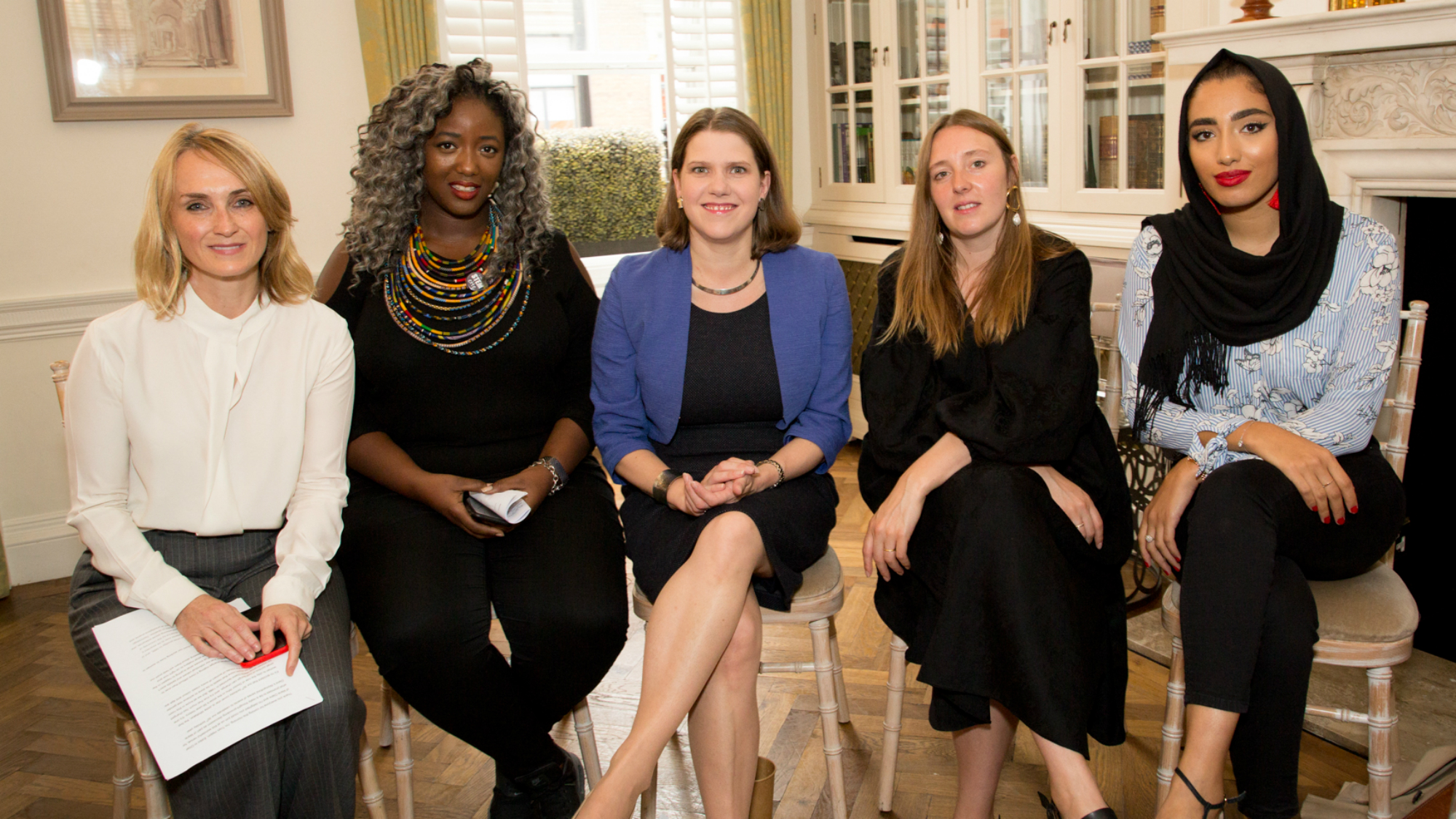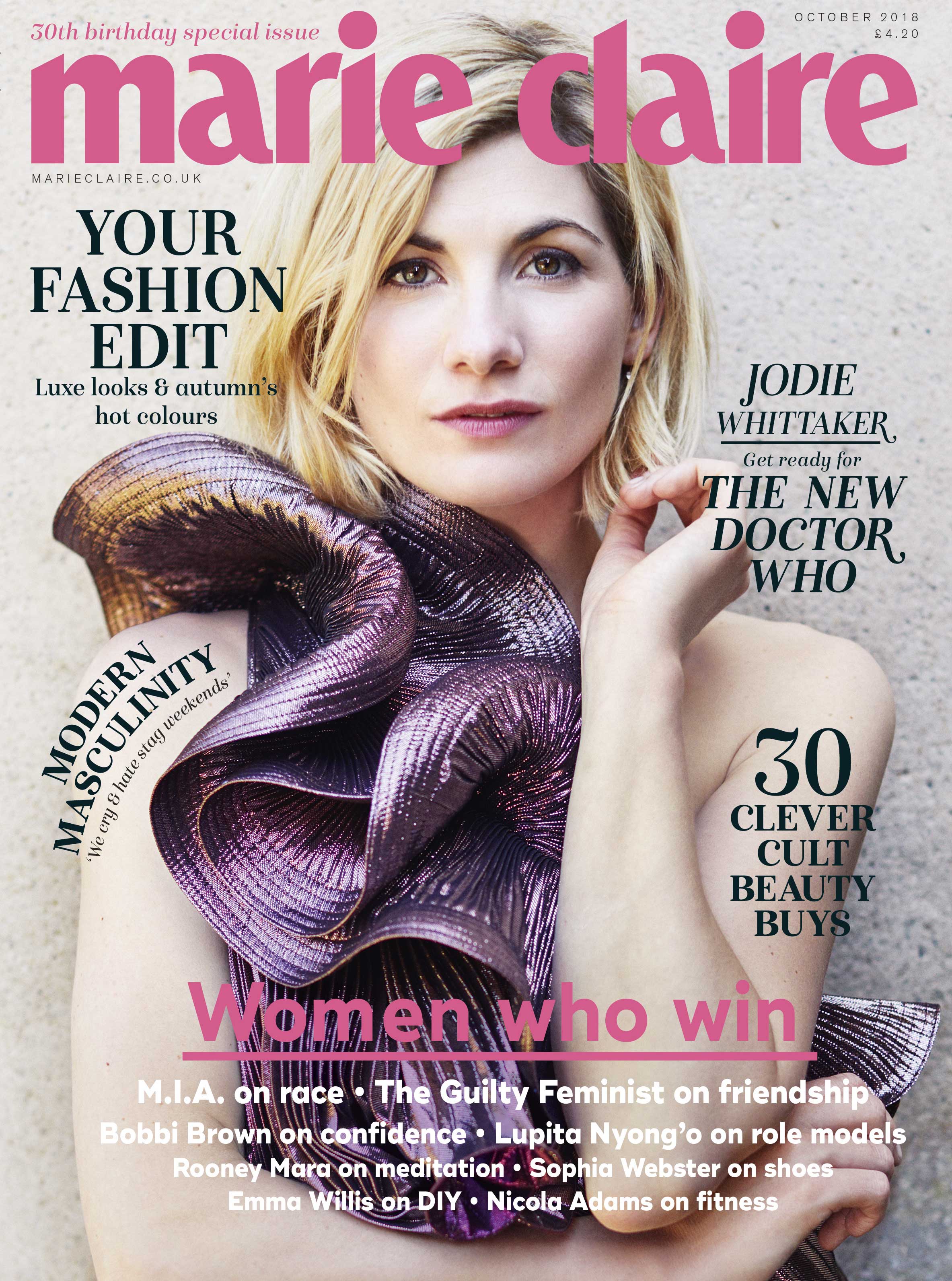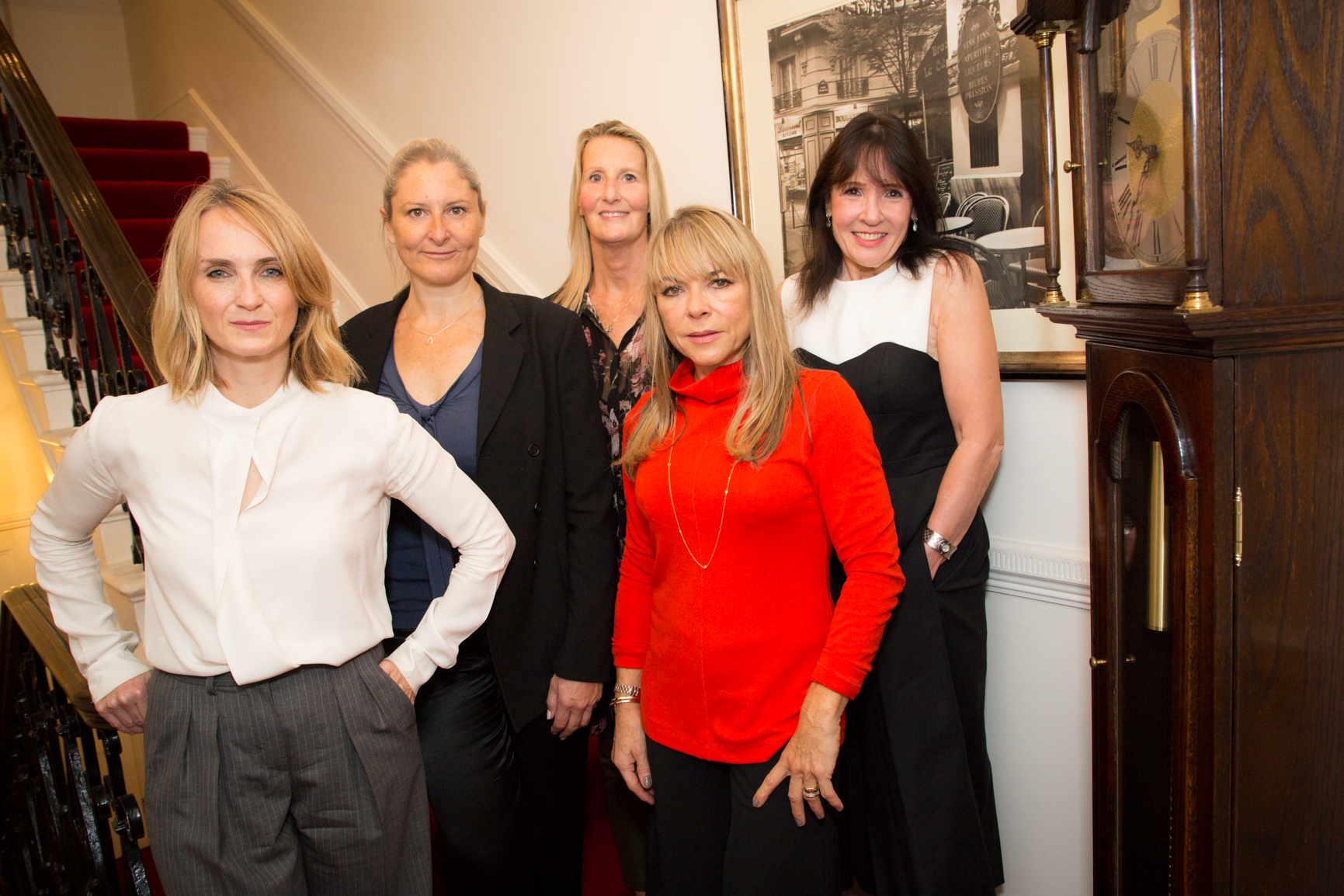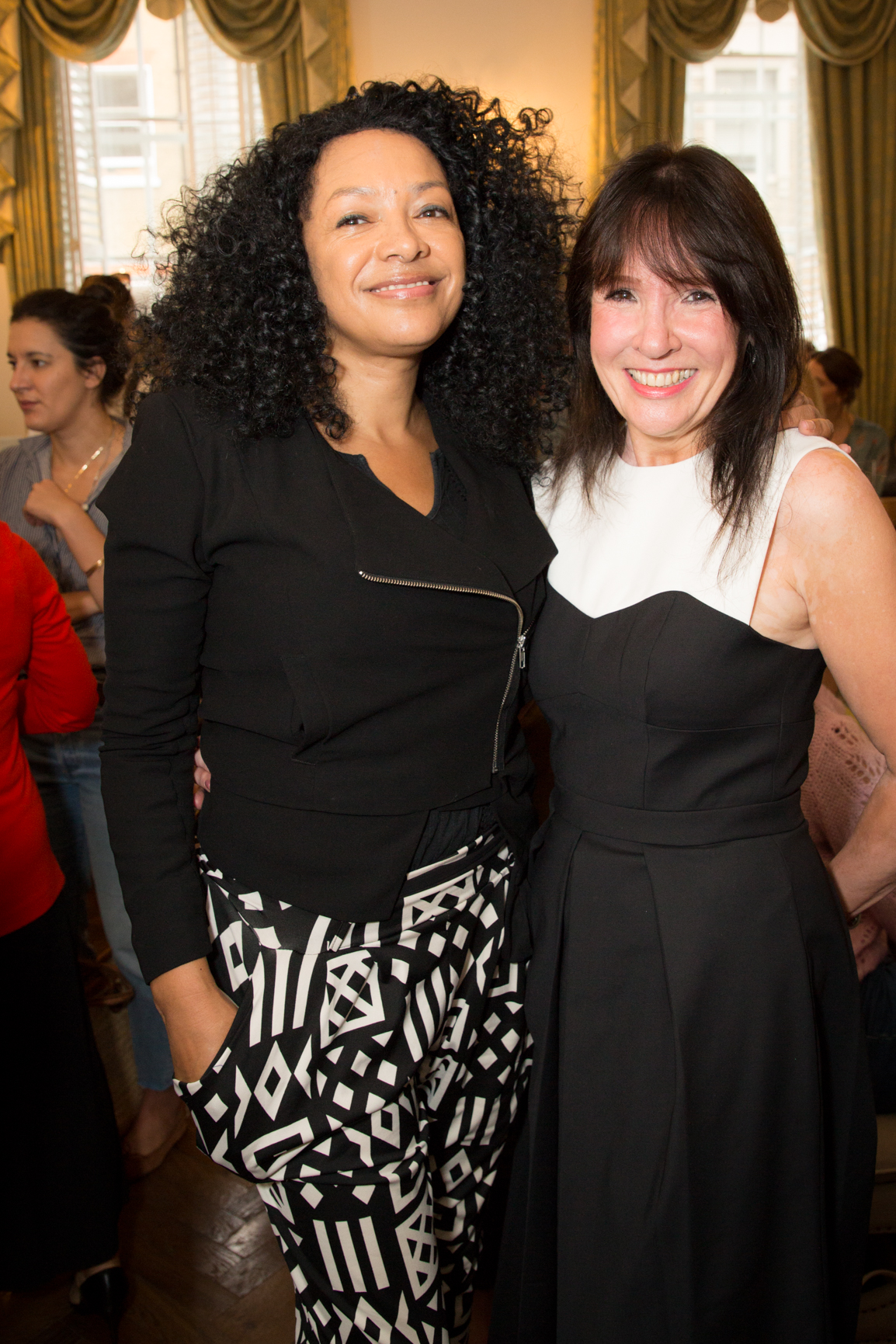Our 30th birthday panel of trailblazers set out the future for women
Here's everything you need to know...


Celebrity news, beauty, fashion advice, and fascinating features, delivered straight to your inbox!
You are now subscribed
Your newsletter sign-up was successful
Here's everything you need to know...
This month marks Marie Claire's 30th birthday, a milestone that we are celebrating with a special commemorative October issue featuring none other than Jodie Whittaker, the first ever woman to take on the role of Doctor Who.

'It's no coincidence that our 30th birthday October issue cover star is Jodie Whittaker, the first female Dr Who in the show's 50 year history,' our editor Trish Halpin announced as she opened our Marie Claire 30th birthday breakfast on the future of women this morning at The Clock Library and Gym, in Marylebone. 'I think that it demonstrates just how much can change, and an awful lot has changed in the 30 years since Marie Claire was launched.'

'But we all know that there is so much more that needs to be done to really get to a position of gender equality and to ensure that the voices of women of every creed, colour and age are really truly being heard,' she continued, going on to introduce a powerhouse female panel to speak on the future for women in work, technology, diversity and sustainability.
Female guests networked over fresh fruit, granola and plenty of caffeine - hearing the expert insights on the future of women from the panel, and taking away invaluable advice.
These are the most inspirational takeaways from the Marie Claire 30th birthday breakfast, with thanks Carol Bagnald from Black on Silver for making it all possible:
The future of work and women
(Jo Swinson CBE and MP for East Dunbartonshire)
Celebrity news, beauty, fashion advice, and fascinating features, delivered straight to your inbox!
'Thinking about what's happened in the workplace in the last 30 years, we have made progress for the position of women,' explained Jo Swinson MP. 'We've seen a lot of legislative progress - in the 1970s the ladies at the Ford plant campaigned for equal pay which ultimately became legislation in the equal pay act, yet we still don't have that as a reality over 40 years later. We won new protections for women in terms of maternity leave, and yet still today we have 54,000 women a year in this country losing their jobs because of pregnancy and maternity discrimination. It's illegal, it's been illegal for years and yet it still happens.'
'Yes, there are more women at the top,' she continued. 'The number of women in parliament has gone from 3% to 30% so there is progress, but when I was 21 I didn't think we'd still be having this discussion 20 years later, and it doesn't feel like progress has been as quick as it should have been.'
What can we do?
Well according to Jo, there are three things that everybody can do to make change.
'The first is to just sit at the table. Sheryl Sandberg once said that and it really resonated with me. How often have we gone to a meeting and women have sat around at the sidelines or not felt like they could contribute? So sit at the table - you are there on your own merit, and make sure you say something even if you're scared inside. The second is to amplify the voices of other women. In Obama's first term, the women in his cabinet decided to praise and amplify each other's points in order to get them the credit they deserved - something we can all follow. And finally, break the mould - think about how you can challenge stereotypes and have an impact on what young boys and girls will see.'
The future of technology and women
(Anne-Marie Imafidon - co-founder of Stemettes)
'If we had more women involved in the creation of technology, it would be more altruistic,' Anne-Marie explained, going on to use the new FitBit period tracker as an example.
'They put out this feature and it limited a period to ten days which is an interesting restriction to put on something like period tracking,' she continued. 'It just goes to show that there should have been more women in the room. We need to make sure that we are there.'
What can we do?
'We all know the three Rs - reading, writing and arithmetic, but there are now four,' Anne-Marie explained to the room. 'We need to re-digital. Digital literacy is something we all need to make sure we’re clued up on. Rather than being just a consumer, we should look to be creators, get ourselves in that room and take control.'
The future of diversity and women
(Ella H - Authentically Ella and Civil/ Tunnel engineer)
'When I started in construction there were only a few women, and fewer women of colour, and even fewer women that were muslim,' Ella explained during the panel discussion. 'There were a lot of things about diversity that really resonated with me. I am treated differently - and not just because I'm a woman, also because I wear a headscarf.'
What can we do?
'We need to encourage younger girls to get into engineering, and something that I definitely want to encourage is for those young girls to find the role models that I didn't have when I was growing up,' Ella explained. 'My mother was my role model but she wasn't an engineer, and when I got into engineering, if I had a role model that looked like me, I would have had a clearer idea which path I should take and I'd feel more comfortable and a lot more confident. It is difficult to talk about an issue that you are facing to someone who doesn't look like you and doesn't understand it.'
She continued: 'But we shouldn't just be trying to raise the number of women in engineering and construction. We need to shatter the misconception that our intellectual abilities are defined by the way we look and the fashion we choose to wear.'
The future of sustainability and women
(Amy Powney - Creative Director of Mother of Pearl)
'There is a huge campaign going on at the moment with increasing numbers of women wearing t-shirts saying "I'm a feminist", but I don't think anyone is actually thinking about the woman that manufactured that t-shirt,' Amy explained. 'She probably had no maternity rights and didn't get paid enough money, and we're just walking around wearing them flippantly and throwing those t-shirts in the bin at the end of the trend, not thinking about the women earlier in the journey.'
What can we do?
'It's not just about us,' Amy Powney explained. 'We obviously have issues that we need to deal with here but there are huge problems out there that are bigger than our problems that need addressing. We need to talk about the women in the supply chain and think about them too.'
Amy continued: 'We are a fast-fashion nation who are consuming clothes very rapidly and throwing them into the bin. We have got circulatory issues, we have got synthetic fibre issues - we are basically killing the world through fashion, and as the women that we are, we need to make choices that can ensure that we look great and save the planet at the same time.'

Discussing these topics - writing about them, tweeting about them and addressing them in forums like this - is what is really going to push the agenda and make change,' Trish explained to the room, encouraging us all to keep the conversation going.
Feeling inspired? Come along to our next event and experience the first hand empowerment yourself.
With special thanks again to The Clock, Carol Bagnald and Black & Silver.

Jenny Proudfoot is an award-winning journalist, specialising in lifestyle, culture, entertainment, international development and politics. After working at Marie Claire UK for seven years - rising from intern to Features Editor - she is now a freelance contributor to the News and Features section.
In 2021, Jenny was named as a winner on the PPA's '30 under 30' list, and was also listed as a rising star in journalism.